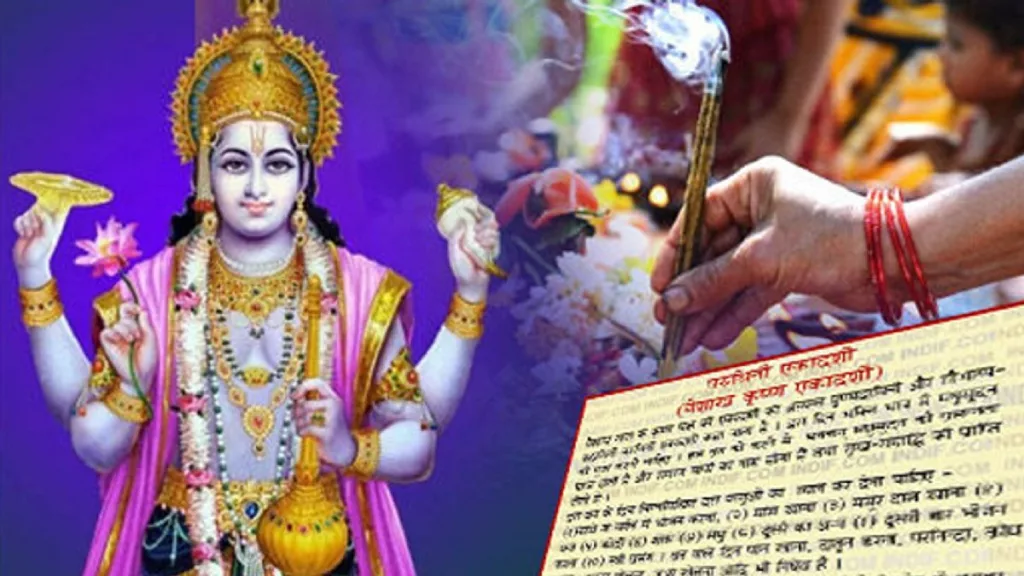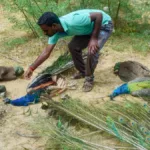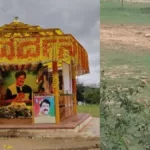Parivartini Ekadashi, also known by names such as Padma Ekadashi, Vamana Ekadashi, and Jal Jhulni Ekadashi, is one of the most significant fasts in the Hindu calendar. Observed during the Shukla Paksha (the bright fortnight) of the Bhadrapada month, this day is dedicated to Lord Vishnu and holds immense spiritual importance, particularly as it falls during the auspicious Chaturmas period.
Here is a comprehensive guide to Parivartini Ekadashi 2025, including the date, auspicious timings, fasting rules, and its profound spiritual significance.
Parivartini Ekadashi 2025: Date and Shubh Muhurat
In 2025, Parivartini Ekadashi will be observed on Wednesday, September 3rd. The observance of this Vrat (fast) is based on the Tithi (lunar day) which begins and ends at specific times.
- Ekadashi Tithi Begins: 3:53 AM on September 3, 2025
- Ekadashi Tithi Ends: 4:21 AM on September 4, 2025
The breaking of the fast, known as Parana, is a crucial part of the ritual and must be performed at the right time.
- Parana Time: 1:36 PM to 4:07 PM on September 4, 2025
It’s important to note that the Parana must be performed within the Dwadashi Tithi and not during the Hari Vasara, which is the first quarter of the Dwadashi.
Spiritual Significance of Parivartini Ekadashi
The name “Parivartini” means “the one who turns or changes direction,” and it refers to the central belief of this day. According to scriptures, it is on this day that Lord Vishnu, who is in a state of cosmic sleep (Yoga Nidra) during Chaturmas, changes his position from the left side to the right. This celestial shift symbolizes a powerful change in divine consciousness and cosmic energy.
Observing this Ekadashi is believed to bring a multitude of spiritual and material benefits:
- Purification from Sins: Devotees believe that fasting and praying on this day can cleanse them of past sins and negative karma.
- Spiritual Awakening: The Vrat helps in purifying the mind and body, leading to spiritual growth, inner peace, and a closer connection to the divine.
- Divine Blessings: It is believed that observing the fast with devotion attracts the blessings of Lord Vishnu, granting prosperity, peace, and liberation (moksha).
- Worship of Vamana Avatar: This Ekadashi is also dedicated to Lord Vamana, the fifth incarnation of Lord Vishnu. Worshipping him on this day is considered highly auspicious.
Fasting Rules and Vrat Vidhi
The Vrat for Parivartini Ekadashi is a rigorous discipline that goes beyond abstaining from food. Here are the key rules and rituals to follow:
On the Day Before Ekadashi (Dashami):
- Devotees should eat only a single meal in the afternoon on the day before the fast (Dashami) to ensure no residual food remains in the stomach.
On the Day of Ekadashi:
- Early Morning Rituals: Wake up before sunrise, take a holy bath, and resolve to observe the fast with full sincerity.
- Puja and Mantras: Clean the puja area, place an idol or image of Lord Vishnu, and offer flowers, fruits, and Tulsi leaves. Chant Vishnu mantras such as “Om Namo Bhagavate Vasudevaya” and recite the Vishnu Sahasranama.
- Types of Fasting: The level of fasting can vary based on an individual’s health and capacity.
- Nirjala Vrat: The most stringent fast, involving no food or water.
- Jalahar Vrat: Fasting only on water.
- Phalahari Vrat: Consuming only fruits, milk, and certain vegetables like potatoes and sweet potatoes. Grains, cereals, lentils, and pulses are strictly prohibited.
- Abstinence: Devotees must abstain from certain activities, including:
- Consuming rice, grains, cereals, pulses, onion, and garlic.
- Sleeping during the day.
- Engaging in negative thoughts, speech, or actions.
- Shaving or cutting hair and nails.
- Night Vigil: Staying awake throughout the night (Jagran) and chanting hymns and prayers is considered highly meritorious.
On the Day After Ekadashi (Dwadashi):
- Breaking the Fast (Parana): The fast should be broken at the specified Parana time with a light, sattvic meal. It’s recommended to break the fast by having a few grains of cooked rice.
- Charity: It is customary to donate to the needy or offer food to Brahmins before breaking one’s own fast.







